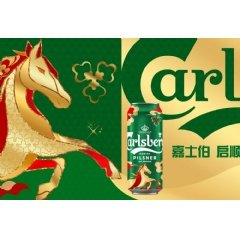Tuesday, 17 February 2026
3 reasons to start looking for chicory root fibres in your treats
Christian Philippsen, Managing Director, BENEO, Asia Pacific More and more consumers are aware of the fact that their digestive health massively influences their overall health. A recent survey conducted by…

Christian Philippsen, Managing Director, BENEO, Asia Pacific
More and more consumers are aware of the fact that their digestive health massively influences their overall health. A recent survey conducted by FMCG Gurus about holistic health reveals that half of global consumers (49 per cent) actively seek solutions to support digestive health[1]. Additionally, they have high expectations when it comes to what they eat — demanding reduced sugar and more transparency in ingredient labelling. All this, while maximizing the nutritional value of every bite.
This is where fibres enter the picture. Health-savvy consumers often look out for fibre in food and drink formulations, thanks to its benefits towards boosting a healthy gut. Product manufacturers who can include front-of-pack labelling with nutritional, health and function claims have a clear advantage. With BENEO’s chicory root fibres, such claims are not only possible but are also scientifically backed, allowing product developers to get innovative with clean label formulations — without sacrificing taste.
Chicory Root Fibres: One Plant, Multiple Health Benefits
BENEO’s prebiotic fibres Orafti® Inulin and Oligofructose (derived from chicory root) are popular with manufacturers as they bring the added benefits of being natural, non-GMO, and clean label — as they are obtained from chicory root via a gentle hot water extraction. This harvesting from nature clearly distinguishes them from certain other fibres, which are often made indigestible by chemical and enzymatic modifications.
Chicory root fibres are also clinically proven plant-based prebiotics according to the International Scientific Association for Probiotics and Prebiotics (ISAPP). They have also been recognized in several countries, for example, the Chinese Nutrition Society, China’s largest professional nutrition body concluded that inulin and oligofructose are among the first accepted prebiotics, and the National Agency of Drug and Food Control of Indonesia approved them as the first and only ingredients recognized as prebiotics in the country.
Adding Fibre to Formulations: The Best Thing Since Sliced Bread
Hearty, and especially rustic baked goods, are naturally associated with fibre. Using chicory root fibre ingredients — such as BENEO’s Orafti® Inulin and Oligofructose — as a soluble fibre source allows easy incorporation into baked goods to boost total fibre content while promoting digestive health based on its proven prebiotic benefits.
Take oligofructose for instance. While being a dietary fibre, it also acts as a natural sugar replacer due to its moderately sweet taste — 30 per cent to 65 per cent of the sweetness of sucrose — without any lingering aftertaste. It can be used to reduce calories, has prebiotic benefits and can mask off flavours associated with high-intensity sweeteners. By providing bulk solids, chicory fibre replaces sugar and added sugars while maintaining the taste and texture of the final product.
Apart from replacing sugar, chicory root fibres also allow manufacturers to reduce the fat content in food formulations, thereby further improving its nutritional profile. For instance, Orafti® Inulin’s long-chain molecular structure offers fat-mimetic texturizing properties and can be used to replace part of the fat content in dairy products like yoghurt or ice cream. At the same time, it provides a creamy mouthfeel.
Another example is cereal bars. BENEO’s prebiotic chicory root fibre not only adds fibre and contributes to digestive health, but also acts as a binder and humectant — helping bars and other products remain soft over time.
For bread applications fortified for high fibre, formulation and process modifications can manage changes in bread volume, crumb structure, and browning. This includes increased kneading time, or the addition of gluten and/or bread improvers. However, such challenges can be overcome, and sliced bread is a common example of where chicory root fibre can be easily used to increase fibre content.
Sweet Alternatives
When it comes to healthy eating, low/no/reduced glycaemic claims show growth potential as healthy blood sugar management becomes an important focus area for overall health[2].
Chicory root fibres help manufacturers meet consumer trends for being natural, clinically proven ingredients that positively impact digestive health as well as weight management and blood glucose control. For example, manufacturers have the option of using oligofructose to help promote balanced blood glucose levels by replacing sugar or other high glycaemic carbohydrates in food formulations, while at the same time enriching those foods in fibre content helping to bridge the fibre gap.
All these benefits enable developers to use chicory root fibre to replace part of the sugar and fat content of their products — from breads to granolas, puddings to cakes — without compromising taste or texture. Essentially, to appeal to a broader segment of consumers who desire indulgent treats that are also healthier.
[1] FMCG Gurus Health and Wellness Report 2023
[2] New Nutrition Business, 10 Key Trends in Food, Nutrition & Health 2024 p 34
Technology
Carlsberg Launches AI-Crafted Lunar New Year Packaging
Feb 17, 2026 | Beverages
FAO Experts Assess Risk of Antimicrobial Resistance Spreading via Food Loss and Waste
Feb 17, 2026 | Sustainability
Setting the Standard for Sustainable Ingredients
Feb 16, 2026 | Ingredients
Food Testing
Redefining Trust in Organic Foods through Independent Testing
Feb 13, 2026 | Food Safety and Testing
AFNOR International Eyes Global Food Safety Growth with HACCP Group Takeover
Feb 04, 2026 | Australia
More Popular
Cerealto Sells Pasta Unit to Specialist Player Cerealis
Feb 17, 2026 | Company News
New Nestlé Vital nutritional drink targets rising demand for healthy-ageing solutions
Feb 17, 2026 | Company News
Carlsberg Launches AI-Crafted Lunar New Year Packaging
Feb 17, 2026 | Beverages






